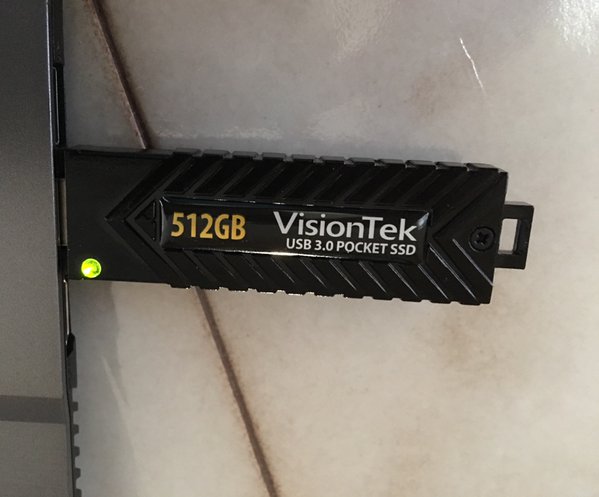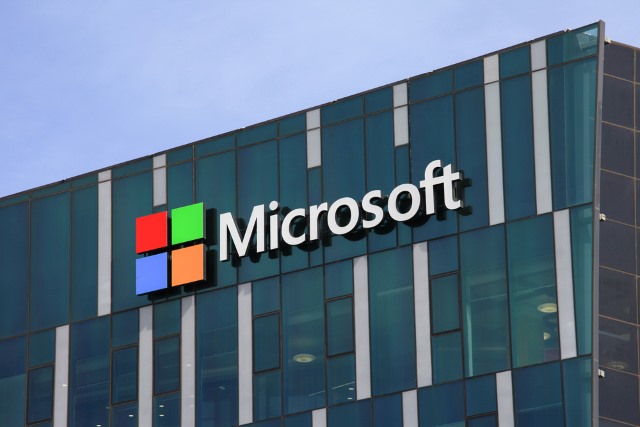
The Pilot earpiece translates foreign languages in real time
Having a conversation with someone who doesn’t speak the same language as you can be difficult and often embarrassing. You may be able to bridge the gap with some rephrasing and lots of mime, but it will likely take a lot of time to communicate even the simplest of sentences.
Enter the Pilot from Waverly Labs. These smart earbuds allow real-time translations in French, Spanish, Italian, and English, with more languages to follow.

Adobe starts a new war on software piracy
Adobe software is among the most expensive out there, so it should come as little surprise that the likes of Photoshop, Illustrator and Acrobat are among the most commonly pirated titles. In a bid to clamp down on piracy, the company has launched a new initiative that seeks out "non-genuine software" and issues warnings to people.
At the moment it appears as though the checks are restricted to the US and Adobe seems to be checking Acrobat X licenses. But while the scope is limited right now, it's hard to imagine that the Software Integrity Service checks won't be rolled out on a wider scale and include more Adobe products.

Hackers using bot armies for financial gain
A new security report by digital identity company ThreatMetrix says hackers are using a large army made out of "automated cyber robots", or bots, for financial gain.
Their Q1 2016 report, entitled Q1 Cybercrime Report, says there have been 311 million bot attacks detected and stopped in this year’s first quarter.

Edward Snowden warns about the dangers of using Google Allo
When Google announced the launch of two new messaging apps, the world wondered why. Duo is focused on video calling, while Allo is a more traditional messaging tool, albeit one with a Google assistant built in.
But while the world shrugged, Edward Snowden issued a stark warning. He says that Allo should be avoided, pointing out that the lack of end-to-end encryption makes it "dangerous".

How gaming technology lead to the VR revolution
For those that are into gaming, you know that it’s not a hobby -- it’s a lifestyle. Even before the advent of the computer, gaming was a way of life. From its very early stages to modern day, gaming is a world unto itself. But like any refined art form, gaming has come a long way to evolve into the tour de force that it is today.
Stemming from humble beginnings, gaming has really experienced a revolution. Gaming is something that is now easily accessible and some sort of console exists in most houses and who knows what the future beyond VR gaming will hold. Here is the process of the birthing of modern day gaming tech:

Why IT departments never go on vacation
Admit it, we’ve all been thinking about the summer vacation since the blustery days of winter. Dreaming of destinations, looking at dates and ultimately, sending those out-of-office notices so that everyone knows we’re taking a break and heading out of town!
But while most of us are safe to switch those out-of-office messages on and tune out on our summer trips, IT is an industry that never truly gets a vacation. No matter the time of year, IT departments are always hard at work creating and maintaining the foundation of the modern business world. Among the top reasons why IT never goes on vacation, three are:

Jaybird releases Freedom Wireless Bluetooth Buds
Bluetooth headphones are a godsend for those that run and exercise. Heck, they are convenient for sedentary users too. Traditional analog variants -- which use a wire -- can get tangled and stuck on equipment. This can be dangerous to both the user and the device to which the wire is connected. With rumors of future iPhone devices ditching a 3.5mm jack, wireless headphones could become even more important.
Today, Jaybird -- a company recently acquired by Logitech -- releases the Freedom Wireless Bluetooth Buds. The "smart" headphones are designed for active people -- they are resistant to sweat, and offer up to eight hours of battery life. It can even interact with a mobile app called 'MySound' for iOS and Android.

Ghostpress keeps you safe from (some?) keyloggers
Ghostpress is a free Windows tool which tries to prevent your keystrokes being recorded by malware. There are many similar programs around, but what makes this one stand out is it’s portable, and so can offer at least some protection when you’re working on other people’s PCs.
Launch the program and a green "Protected" icon shows that everything is working correctly. Neat.

Create your own PC forensics toolkit with AChoir
Need to know what someone’s been doing on a PC? Running some of NirSoft's forensic freeware on a USB key could help you collect enough data to figure it out.
LastActivityView lists recent computer actions, OpenSaveFilesView reports on recently opened and saved files, ExecutedProgramsListdetails the programs they’ve launched, WifiHistoryView shows recent network connections, and the list goes on.

Google 'Science Journal' Android app is a digital notebook for STEM education
While all jobs and careers are important to society, scientists are arguably the greatest drivers of change. These professionals are responsible for curing diseases, improving our quality of life, and advancing our knowledge of the world.
In order to keep a steady crop of quality scientists coming out of universities, it is important to create ways to foster interest in STEM -- science, technology, engineering and mathematics -- at a young age. With this in mind, Google releases an Android app, called Science Journal, aimed at helping young students record and trend scientific experiment results.

Microsoft opens up the Windows 10 Feedback Hub to everyone, not just Insiders
Ever hungry for more user feedback, Microsoft has decided to make the Feedback Hub available for anyone to use. Previously only open to Windows Insiders, the tool gives Windows 10 users the opportunity to tell Microsoft exactly what they think about the company's latest operating system.
The Feedback Hub has been built into preview builds of Windows 10 for some time, but now the app is available to download from the Windows Store. With the launch of Windows 10 Anniversary Update just around the corner, it's clear that Microsoft is keen to gather as many comments and as much reaction as possible.

VisionTek USB 3.0 512GB Pocket SSD [Review]
When USB flash drives first hit the market, they felt like magic. Don't forget, at that time, we weren't far removed from floppy disks. Flash drives were brilliant for students, businesses, and general home use. Over time, these USB drives became faster, while gaining greater capacities.
While the explosion of cloud storage has made flash drives less necessary, the USB devices are still very useful. Even if you do choose to store your data in the cloud, making a local backup is very wise -- redundancy, folks! Today, I am looking at one of the most intriguing such USB drives -- the VisionTek USB 3.0 512GB Pocket SSD. That's right -- a half terabyte!

Microsoft updates policies to tackle terrorism on the internet
Microsoft has outlined its latest plans to crack down on terrorist and extremist content online. Recognizing that the "internet can be used for the worst reasons imaginable" the company has set out its approach for ensuring that content promoting terrorism does not make it online through its services.
As well as updating its terms of use to make it explicitly clear that terrorist content is not permitted, Microsoft is also planning to up its game in seeking out and removing offending content. To help with this task, the company is forging new partnerships with experts in the field, as well as employing new technology to help to automatically identify and remove terrorist material.

Google launches Safe Browsing API version 4
The world wide web used to be like the wild west (and still sort of is). Visiting the wrong site would often mean an infection with malware or other nastiness, such as getting taken by scams. While that can still happen today, web surfers are much more protected. Some security suites don't only scan for and remove viruses on your hard drive, but prevent the download entirely. Not to mention, users are often better trained to recognize a scam.
Unfortunately, no web browser or security software package is infallible -- nor is any user. Thankfully, Google is working around the clock to keep the world protected. Its Safe Browsing API is available to developers, allowing software -- such as Chrome -- to warn a user before they visit a dangerous site. Today, the search giant launches the fourth version of the API.

Why is Google bringing Android apps to Chromebook?
Answer: Your kids. Chromebook leads laptop and desktop sales through U.S. commercial channels to schools, according to NPD. Education is overwhelmingly the primary market for the computers. The institutions can't buy enough of the thangs, for their utility and low-cost compared to notebooks running either OS X or Windows. That cost is as much about extended webapps and services from Google (or its developer partners), available for free or comparatively next-to-nothing, set against software for the other platforms.
Wrinkle in the Google firmament: iPhone and Chromebook are like water and dirt. The sediment settles unless shaken up. Sure youngsters can do all their Googly things—Docs, Gmail, Maps, Photos, YouTube, etc. -- on iOS but the experience is smoother and more homogenous when mixed Android and Chrome OS. What the kiddies lack, and their educators, is a swath of useful apps like the Apple kids get.


